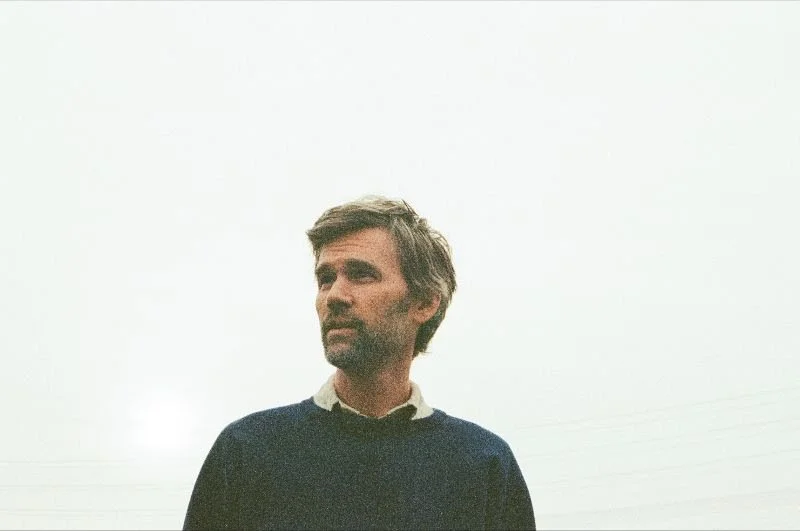Willie Watson announces debut album and single (out Sept 13th)
FORMER FOUNDING MEMBER OF OLD CROW MEDICINE SHOW
WILLIE WATSON ANNOUNCES SELF-TITLED
DEBUT ALBUM
RELEASES FIRST SINGLE ‘REAL LOVE’
LISTEN HERE | WATCH HERE
MAJOR NORTH AMERICAN TOUR ANNOUNCED
Singer-songwriter, poet, actor and multi-instrumentalist Willie Watson has announced his first-ever solo album of original material - over 20 years into his career. The former member of Old Crow Medicine Show has been a part of numerous musical projects, soundtracks, and films and is now set to release Willie Watson on September 13th via Little Operation Records and More (Thirty Tigers). Ahead of that he recently released the first single ‘Real Love’ and its gorgeous accompanying video. Directed by Joseph Wasilewski, the video follows Willie and his wife Mindy as they slow dance through significant places in their relationship.
"Real Love" is a love song I wrote for my wife,” explains Watson. “It kinda turned out to be the story of my life and it’s clear now that she’s standing in the center of everything. We’ve been looking for each other for a long time and now we can’t even remember all the struggle it took to get here.
LISTEN HERE | WATCH HERE | PREORDER HERE
Willie Watson has spent most of his musical career as a favorite of musicians in the know. As an inspiring and eccentric character, a remarkable player, and a human who looks at the world differently, Watson attracted a who’s who of collaborators throughout his career including Gillian Welch and David Rawlings, John Prine, John C. Reilly, Sara and Sean Watkins and so many more. Watson has always battled his own self-diminishment and only now has decided to allow a body of work of his own to be released into the world.
“After 30 years of playing music professionally - this is my debut album. This record is me beating the devil, or the story of what finally did it anyway. I didn’t make any specific pact or anything but I know we’ve been tangled up most of my life. Now that he’s gone I can love myself again,” says Watson of the record.
Watson recorded the album in Los Angeles with producers Gabe Witcher (Punch Brothers) and Kenneth Pattengale (Milk Carton Kids) and with a crack band of players including Paul Kowert on bass (Punch Brothers), Dylan Day on guitar (Jenny Lewis, Nick Hakim), Benmont Tench on keys (The Heartbreakers), Jason Boesel on drums (Bright Eyes, Jenny Lewis), and new massive talent Sami Braman on fiddle. The collection of songs is honest and potent, an unadorned reflection of Watson’s life, his mistakes, his traumas, and his gratitude to still be here, to still be alive, and to still be loved. It's the type of record that can’t come early in one’s career, and was won after a life of hard battles and difficult lessons.
Willie Watson was born and raised in upstate New York where he started the earliest iterations of his musical life while still in high school. As a teenager, Watson and Ketch Secor co-founded Old Crow Medicine Show - a group of remarkable players obsessed with early American traditional music. He remained in the band as one of its main creative forces until he departed in 2011. Watson appeared in Joel and Ethan Cohen’s The Ballad of Buster Scruggs in the role of The Kid and also as a part of the soundtrack, performing with Tim Blake Nelson on the Oscar-nominated When A Cowboy Trades His Spurs For Wings. He also appears on the soundtracks for the Coen Brothers Hail, Caesar! and Live By Night. Watson previously released two albums of covers, Folk Singer Vol.1 and Folksinger Vol 2.
Watson will head out on a major North American tour kicking off in June and wrapping up in December. Highlights include the Tractor Tavern in Seattle on November 6th, the Basement East in Nashville on December 3rd, and The Bowery Ballroom in New York City on December 12th. Find tickets and full tour dates here.
More About Willie Watson
Soon before Willie Watson turned 18, he met God in an apple orchard. Or at the very least, he met there a man named Ruby Love, the older friend of a high-school buddy who had an enormous Martin guitar and a seemingly bigger understanding of the American folk songbook. Watson was existentially thirsty: A high-school dropout from upstate New York’s Finger Lakes, he was fast on his way to his first heartbreak and in a first band that didn’t take itself seriously enough. But that night in an apple orchard that had always seemed magical, at a graduation party for one of his bandmates and best friends, Watson and Love sang a few of those old songs together — ‘Worried Man Blues’ and ‘Tennessee Waltz.’ It was the first time Watson had cried while singing, the first time he had made the connection between making music and making sense of his life. He never saw Ruby Love again, but within months of that foundational 1997 rendezvous, he met the musicians with whom he’d soon start Old Crow Medicine Show. Call it revelation, fate, resurrection, whatever you will; for Watson, more than a quarter-century later, it was a duet with the divine.
As told in the talking-gospel masterpiece ‘Reap ’em in the Valley,’ that scene is the transfixing finale of Watson’s self-titled debut as a songwriter and as a human at last making music to make sense of his life. Yes, Watson has released two albums since he left Old Crow Medicine Show a dozen years ago and since his long-term collaborations with David Rawlings and Gillian Welch. But those records, both titled Folk Singer, were sets of tunes he knew, interpretations of the songbook he has diligently mined since even before that night in the apple orchard. At 44, however, he feels that Willie Watson is his first-ever true album, having finally lived and lost and simply witnessed enough to know he has something to sing with his exquisite rural tenor. Watson has not abandoned those old songs entirely. He dazzles during a robust take on the forever-curious ‘Mole in the Ground’ and treats ‘Harris and the Mare,’ the standard of tragic Canadian singer Stan Rogers, with total tenderness. But by and large, these are his stories of heartbreak and hurt, backlit by the corona of hope that only growth can provide.
Every memory, Watson likes to say, is surrounded by a shroud of sadness, whether it’s good or bad. And there are lots of memories in a life, all mixed: Though the band he started soon after that night with Ruby Love long gave him a purpose and career, it conscripted him into a role as an old-fashioned folkie, forever stuck playing a part that got tiring. Marriage and fatherhood became boons in their own time, but they kept him bound to Los Angeles, its sprawl and selfishness causing a country boy like Watson to lose himself again. And there was the stereotypical excess of it all, too, the habits of hard living nearly breaking Watson in his 30s.
But after he lost those relationships, he slowly got sober and faced himself head on, working to be honest about the traumas of his childhood that had helped create the troubles of adulthood. Sobriety, though, was never enough for Watson. He wanted that shift to prompt change and growth, to force him into situations that were beneficial because they were uncomfortable and challenging. That, in many ways, is the motivation of these nine songs and the only album he’s ever felt deserved to bear his name.
In 2020, Watson began convening with Morgan Nagler, an actress and songwriter he’d met years earlier through Rawlings. They’d discuss an idea and then often sit in silence, scratching away at it separately as Watson wriggled around on a couch, as if wrestling with his past in the real time of the present. Sometimes playful and sometimes persecuted, the songs that emerged looked backward to move ahead, dealing with disappointments in phrases of crisp rhyme and sly wordplay.
A post-pandemic solo tour had left Watson feeling drained by the idea of being some standalone entertainer, onstage alone taming crowds who had forgotten how to listen amid extended isolation. He knew he wanted a band for these songs, but he understood they only needed to be the framing beneath them, supporting rather than distracting from these reckonings with self. Alongside producers Kenneth Pattengale and Gabe Witcher, respectively of Milk Carton Kids and Punch Brothers, Watson assembled a modest ensemble of aces who were largely new to him but would respond to the songs intuitively and without intrusion—bassist Paul Kowert, guitarist Dylan Day, drummer Jason Boesel, fiddler Sami Braman. (Careful listeners may note cameos from Benmont Tench and Sebastian Steinberg, too.) Start to finish, these songs sound like moments of mutual discovery, the entire group arriving together to look at Watson’s life and realize something about and for themselves.
‘Real Love’ harkens back to those days in rural New York, with Watson opening himself to the wreckage that comes with falling for someone for the first time. He is fragile but resolute here, pressing on in spite of vestigial pain. ‘Sad Song’ thrums like some muted and modern Jimmie Rodgers number, as Watson tries to play-act happiness one more time for a society that’s just wanted him to grin and sing. Echoing the rippling and beautiful despair of Gordon Lightfoot, the gorgeous ‘Play It One More Time’ examines the fleeting salve of music itself, or how the help it gives us can fade when we’re not truly hearing.
And then there’s the hotrod acoustic opener, ‘Slim and the Devil,’ a wits-sharp adaptation of the Sterling A. Brown poem ‘Slim Greer in Hell.’ The story of a Faustian bargain made with St. Peter at the pearly gates in exchange for one more earthly adventure, it’s a sly contemplation of the meaningless deals we make to endure when we all know what’s inevitable, anyway. Watson does it, too, so he winks at himself alongside a band that’s having a blast having his back. Still, there is no winking to ‘Already Gone,’ a devastating if elegant survey of the damage we leave behind as we make bad choices, as we force people to leave our lives. “There’s no hearts to break here,” Watson offers before the knockout. “They’re already gone.”
These days, Watson looks askance at his old reputation and knows other people do, too. “‘I thought you were just some nice little singer who sang in the little fucking cowboy hat,’” he deadpans, characterizing the perception he knows he has in many ways courted. And he recognizes that people probably don’t think he can write his own songs of meaning and depth, since he spent so long reworking those of others. For a long time, he bought that, too. But the hat is off, as is the desire to be a mere entertainer or interpreter.
The nine songs on Willie Watson find a bona fide songwriter dealing with the difficulties of his past to suggest a renewed future; what’s more, he uses his keen and expansive understanding of an old lexicon to add his own new entries to it. As with the best folk songs, you will recognize your own burdens here. As with the best folk singers, you will feel compelled to sound them out, too. Who knows, maybe you’ll even meet God in an apple orchard.
Connect with Willie Watson
https://www.williewatson.com
Instagram | X | YouTube | Spotify | Apple Music



